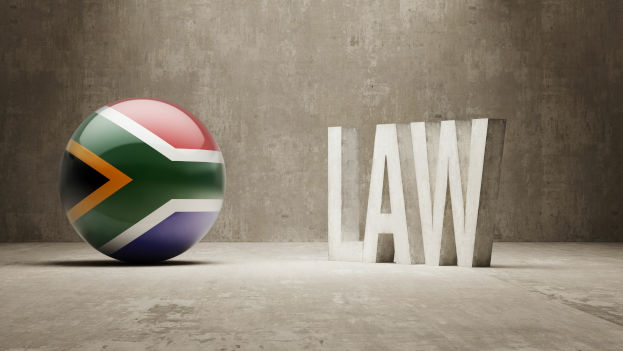The requirement to approach the court with clean hands

The requirement to approach the court with clean hands
Published on May 9, 2024
The “clean hands principle” is a species of the power of Courts to prevent an abuse of process. In terms of the doctrine, the delinquent party cannot avoid the consequence of his immoral or illegal contract in subsequent legal proceedings - in pari delectio potior est condictio defendentis.
In S.A. law the doctrine initially operated as an absolute bar to grant relief to a party. A plaintiff who was found to be in pari deliction (unclean hands) was unable to recover any money or property handed over to a defendant pursuant to an illegal or immoral contract. For example, if parties entered into a deed of sale for the purchase of a vehicle that was still subject to the provisions of a credit agreement (reserving ownership) the seller would have been unable to recover any outstanding monies and/or the vehicle in the event the defendant had defaulted. The seller's unclean hands prevented him to approach the court for assistance.
In the matter of JAJBHAY vs. CASSIM the then Appeal Court affirmed the principle underlying the par delictum rule. The Court however recognised that the rule's strict enforcement may sometimes cause inequitable results between parties to an illegal contract. To prevent these inequities the Court found that from time to time the rule should be relaxed. Relaxation of the rule was necessary in order to prevent injustice or to promote public policy.
(1939 AD 537 at 550)
Since JAJBHAY the Courts have frequently relaxed the protection afforded by the par delictum rule on the grounds of public policy. (Christi, Law of Contract, Fith Edition page 12).
The Appeal Court in OF LISBON AND SOUTH AFRICA LTD vs. DE ORNELAS 1988|(3) S.A. 580 (A) unexpectedly decided to negate the principle of clean hands or exceptio doli generalis in S.A. law. It was therefore since 1988 impossible to rely on the principle in legal proceedings.
Fortunately, the Bill of Rights in the 1996 Constitution rectified the position. The Promotion of the Equality and Prevention of Unfair Discrimination Act of 2000 provides that equality (as referred to in the Bill of Rights) included the full and equal enjoyment of rights and freedoms as contemplated in the Constitution and that it included de jure and de facto equality and also equality in terms of outcomes.
In vs. SULLIVAN 2006 (1) SA 259 (SCA) the Court considered the following facts:
The Plaintiff bought a liquor store from the Defendant in terms of an agreement entered into. When the agreement was subsequently cancelled, the Defendant took possession of the liquor store but refused to repay the purchase price to the Plaintiff. The agreement entered into between the parties was illegal in terms of the provisions of the Liquor Act. The Defendant clearly had unclean hands.
The Court a quo concluded that the parties were in pari delectio (equally morally guilty). The Court then approached the matter on the basis that it was then incumbent upon the plaintiff to have pleaded “further facts” to show that justice and public policy required the relaxation of the par delictum rule to prevent the defendant being unjustly enriched at plaintiff's expense. It concluded that as “no further facts” had been pleaded, the par delictum rule operated against the plaintiff. The Court held that the Plaintiff had failed to establish a cause of action.
On appeal against this decision, the Appeal Court found it difficult to understand which “further facts” Plaintiff was required to persuade the Court that the par delictum rule should be relaxed. The Court found that the equities clearly supported a return to the status quo. There was no need for the Plaintiff to plead the relaxation of the par derelictum rule. It was for the Defendant so show that he was not unjustly enriched to the expense of the Plaintiff. The Court found that the facts have demonstrated that the Plaintiff had a clear cause of action.
The doctrine is of particular importance in passing-off claims. The doctrine is applied only if there was fraud, dishonesty or mala fides on the part of the Plaintiff.
(Amler’s Precedents, Ninth Edition, p.293).
In the recent matter of VILLA CROP PROTECTION vs. BAYER INTELLECTUAL PROPERTY 2024 (1) SA 331 (CC) Villa Crop sought leave to amend its plea by introducing “a special plea in limine”, based on the principle of unclean hands. Bayer argued that there were no reasonable prospects of success that a court would find that the doctrine of unclean hands is applicable in the field of patent law or that it can find application solely based on the allegations made by VILLA CROP.
The Constitutional Court found as follows:-
The clean hands principle warrants the exercise by the Court of its power not to assist a party that has committed a substantial wrongdoing in connection with the very patent it would enforce. The unclean hands doctrine is not reducible to the statutory claim of revocation. It is a distinct cause of action and there is no reason why it should not have application when the litigant comes to Court to vindicate rights, under the Patents Act.
VILLA CROP was accordingly allowed to amend its plea as suggested.
It is clear from the above that the clean hand principle is part or parcel of our S.A. Law and that a cause of action can be formulated in terms thereof.

C.M. Weiss
Practicing Consultant
Why you should choose us
At MW Attorneys we believe that quality of services counts and not quantity. We believe in sincere and continuous communication with our clients and we strive to deliver services of the highest quality, as we have been doing since 1997. We regard our clients as our most important asset!
MW Attorneys has a proven track record since:
1900
